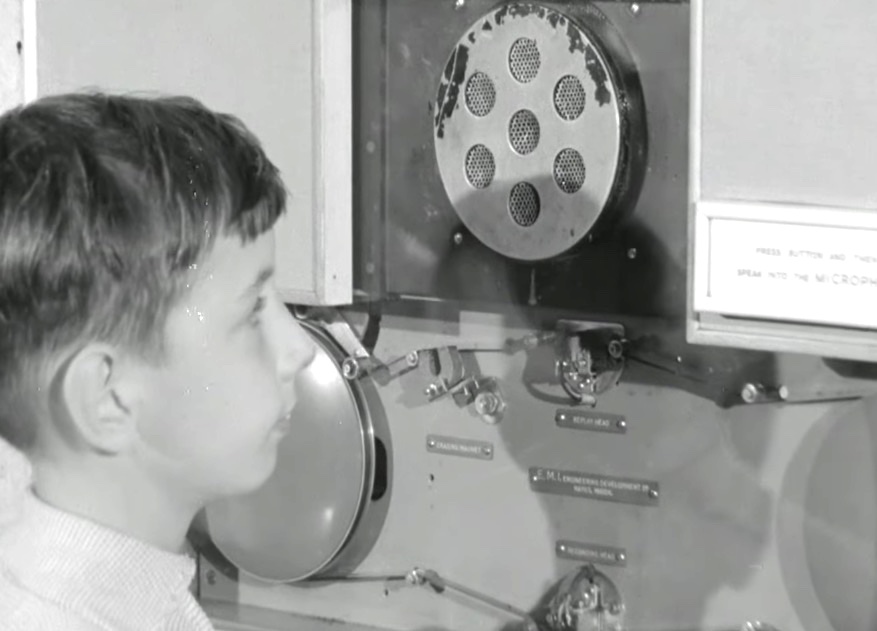In 1959, exciting technology of the future included tape recorders and self-opening doors, at least according to archival footage shared this week by the BBC.
The black-and-white video (below) shows the corporation’s then science correspondent C.L. Boltz exploring the Science Museum in London, U.K., more than 60 years ago.
“Gallery after gallery contains apparatus and machines of incalculable value because so many are originals and exist only here,” Boltz tells viewers in a clipped British accent.
The science correspondent then asks a Mr. Wilson, described as “the man in charge,” which gadget visiting children get most excited about.
Wilson is quick to point out the nearby tape recorder, a large, clunky contraption featuring a microphone larger than the face of some of the kids that speak into it.
The BBC’s footage shows a young boy approaching the then cutting-edge recording equipment and calling out, “Hello, my darling.” He then waits. And waits a bit longer. Finally, the machine’s speaker bellows back a recording of what he just said and … er … that’s it.
Next we see a long line of children waiting patiently to use the aforementioned self-opening door, something that today we might call an “automatic door,” or simply a “door.”
To be clear, the Science Museum’s special door does not act as an entrance to another exhibition room or even as an exit to the streets of London. Sadly, nor is it a portal into the 21st century where visitors would’ve been able to look with utter bewilderment at everything from circular smartphones and air-purifier headphones to heart rate-monitoring light bulbs and robotic nibbler Amagami Ham Ham. Instead, the self-opening door merely acts as a demonstration of what was then a new and exciting technology.
The BBC’s video also features other Science Museum attractions at the time, among them ship propulsion technology, a 1905 Rolls-Royce, the first jet-propelled motor car, and an atomic physics exhibit.
The footage ends with Boltz staring at a crude model of a camel working a water wheel, a sight that may leave you wishing you could somehow reach into the video to tell the science correspondent that technology will definitely get more impressive in the decades to come.
Editors’ Recommendations

